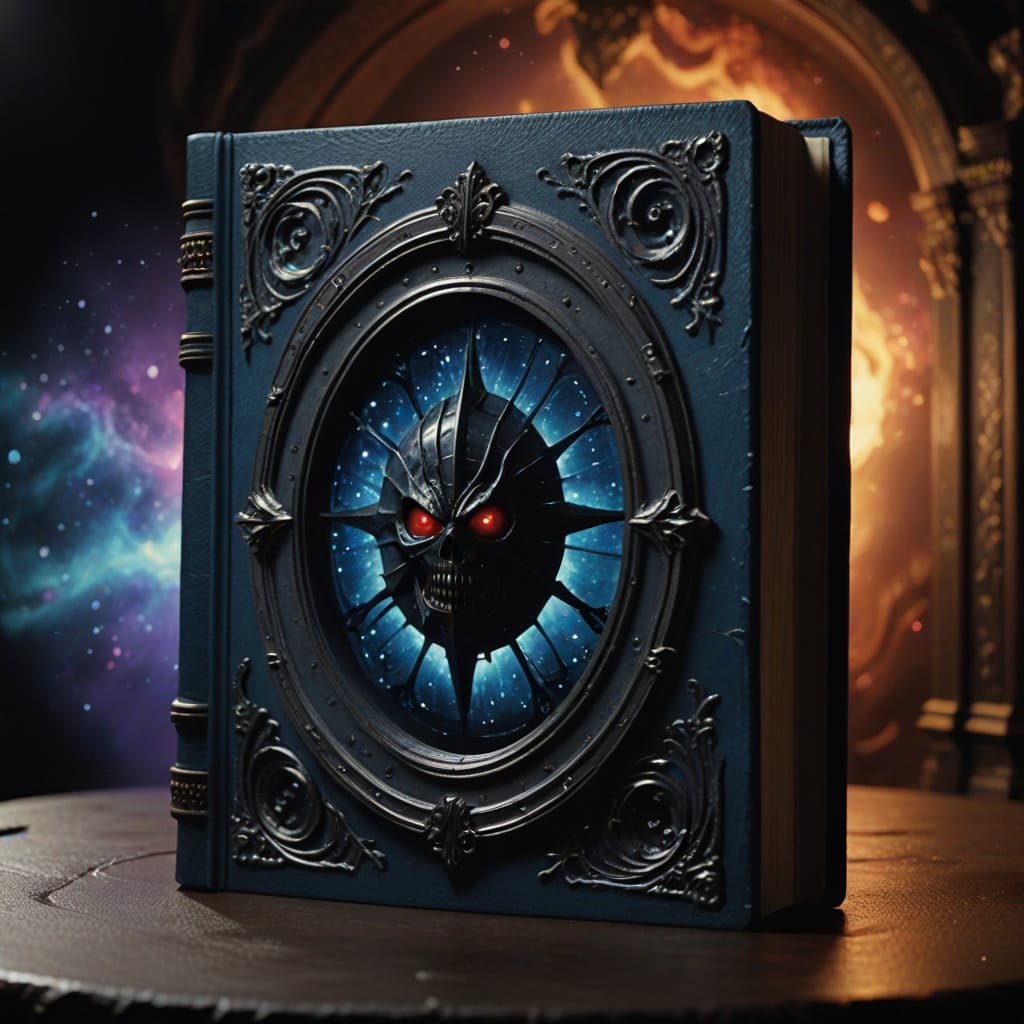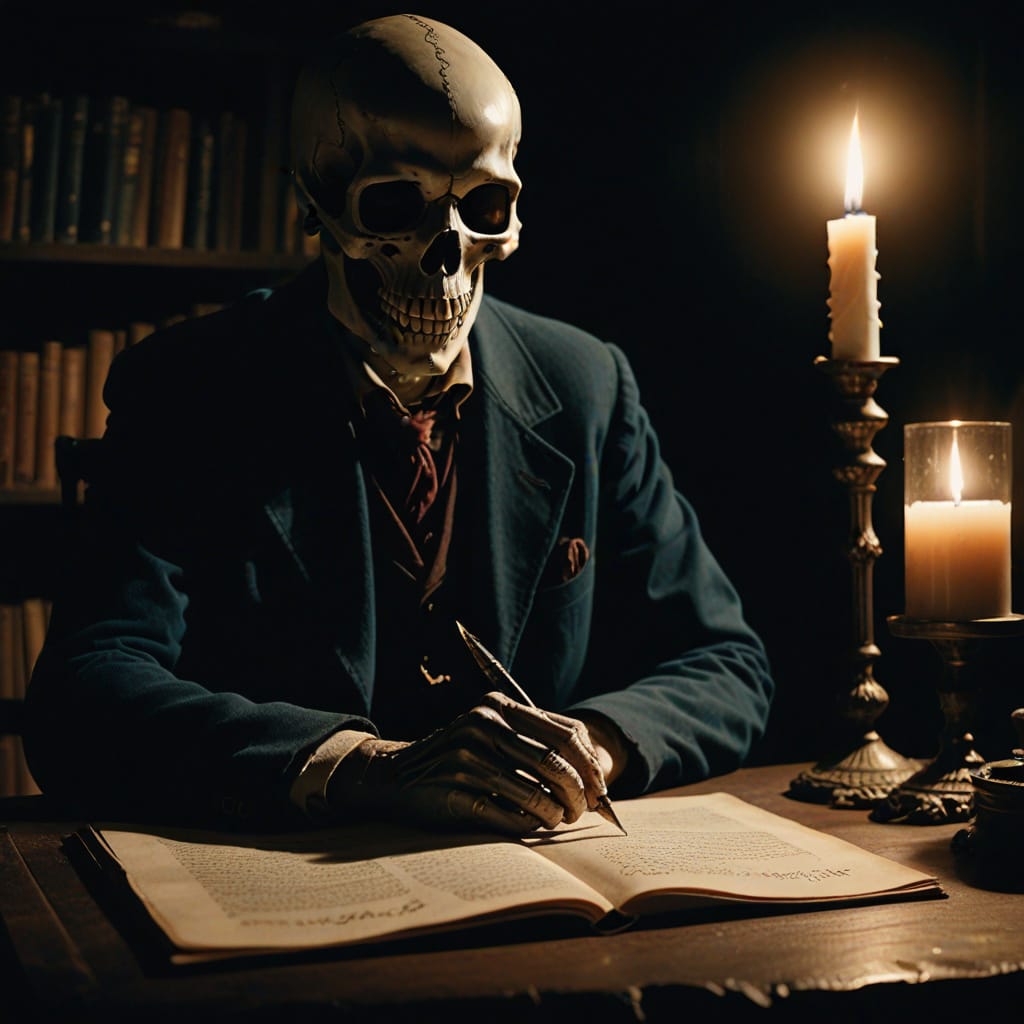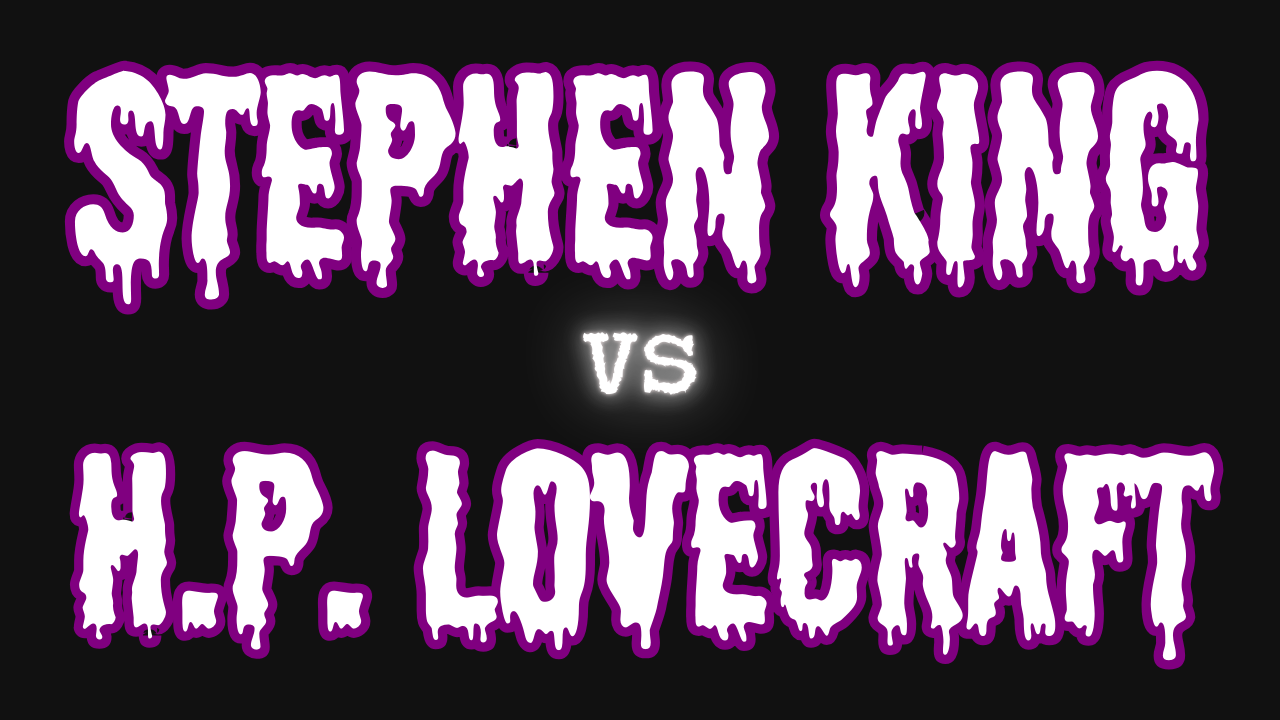H.P. Lovecraft and Stephen King are two of the most influential horror writers of all time. Both have shaped the genre in profound ways—Lovecraft with his cosmic horror and existential dread, and King with his character-driven terror and small-town nightmares.
But who is the better horror author? To determine this, we’ll compare them across several key categories, including storytelling, themes, influence, writing style, and legacy.
Round 1: Storytelling & Worldbuilding
 H.P. Lovecraft
H.P. Lovecraft
- Built an entire mythos filled with ancient, unknowable horrors (Cthulhu, Nyarlathotep, Azathoth).
- Focuses on cosmic horror, where human beings are insignificant specks in a chaotic universe.
- Stories often involve scholars, researchers, or explorers uncovering forbidden knowledge—which inevitably leads to madness or death.
- Lovecraft’s world is cold, indifferent, and terrifyingly vast.
Stephen King
- Creates rich, immersive worlds with small-town horror settings (Derry, Castle Rock, Jerusalem’s Lot).
- Focuses on human-driven horror, often blending the supernatural with real-world trauma (It, The Shining, Carrie).
- Excels at developing relatable, flawed characters, making his horror feel personal.
- King’s horror is both epic and intimate, spanning across multiverses (The Dark Tower) while still being deeply personal.
Winner: Stephen King
While Lovecraft’s worldbuilding is iconic, King’s ability to craft entire lived-in universes with rich characters gives him the edge.
Round 2: Horror Themes & Psychological Depth
 H.P. Lovecraft
H.P. Lovecraft
- Focuses on existential horror—the idea that humanity is meaningless in the grand scheme of the cosmos.
- Themes of forbidden knowledge, madness, and reality-breaking truths.
- Horror often stems from things we cannot understand, and the more we learn, the worse it gets.
- Fear of the unknown is central to his storytelling.
Stephen King
- Explores a wide range of fears—monsters, ghosts, madness, addiction, trauma, childhood fears, and psychological horror.
- Tackles human monsters as much as supernatural ones (Jack Torrance, Randall Flagg, Annie Wilkes).
- Themes of childhood innocence vs. evil (It), grief and loss (Pet Sematary), and the horrors of the human mind (The Shining).
- Fear in King’s works is often deeply personal, stemming from flawed, human emotions and experiences.
Winner: Tie
Both Lovecraft and King explore horror from different angles, and both are equally powerful—Lovecraft’s cosmic horror vs. King’s human and psychological horror.
Round 3: Writing Style
 H.P. Lovecraft
H.P. Lovecraft
- Highly descriptive and archaic, filled with long, dense sentences.
- Loves adjectives like “eldritch,” “cyclopean,” and “non-Euclidean” to evoke an eerie atmosphere.
- Can feel stiff, overly formal, and difficult to read for modern audiences.
- Prioritizes mood and atmosphere over character development.
Stephen King
- More accessible, modern, and conversational.
- Excels at dialogue, pacing, and making characters feel real.
- Can be wordy (his books are often 500-1000+ pages), but his prose is easy to digest.
- Focuses on people first, making the horror hit harder.
Winner: Stephen King
King’s writing is far more readable and character-driven, whereas Lovecraft’s dense, old-fashioned prose can be off-putting for modern audiences.
Round 4: Influence on Horror
 H.P. Lovecraft
H.P. Lovecraft
- The father of cosmic horror, influencing authors, films, and games (The Thing, Bloodborne, Event Horizon).
- Created Cthulhu, one of the most recognizable horror icons in history.
- His influence is seen in sci-fi horror, cosmic horror, and philosophical horror.
- Even though he was not widely recognized in his time, today, he is a literary legend.
Stephen King
- The most famous horror writer of all time, influencing pop culture, movies, TV, and video games (The Shining, It, Stranger Things).
- His books have been adapted into over 100 movies and TV shows.
- Has shaped modern horror literature, making it mainstream and widely read.
- Horror wouldn’t be as popular in the modern era without King’s success.
Winner: Tie
Lovecraft defined cosmic horror, while King made horror mainstream. Their influence is too massive in different ways to declare one better.
Round 5: Legacy & Pop Culture Impact
 H.P. Lovecraft
H.P. Lovecraft
- His works grew in influence long after his death.
- Cthulhu is a global horror icon, appearing in everything from video games to board games.
- Many horror films, books, and games owe their themes of existential horror to Lovecraft.
- Lovecraft’s racism and controversial views have tainted his legacy, making him a complicated historical figure.
Stephen King
- King is a living legend, still publishing books and influencing pop culture.
- His works have inspired hundreds of adaptations, including some of the greatest horror films ever made (The Shining, It, Misery).
- Continues to shape the genre, with millions of devoted fans worldwide.
- Has actively mentored and supported modern horror writers, helping the genre thrive.
Winner: Stephen King
While Lovecraft’s influence is enormous, King’s impact on modern culture is undeniable—he’s still actively shaping horror today.
Final Verdict: Who Is the Better Horror Author?
| Category | Winner |
|---|---|
| Storytelling & Worldbuilding | Stephen King |
| Horror Themes & Psychological Depth | Tie |
| Writing Style | Stephen King |
| Influence on Horror | Tie |
| Legacy & Pop Culture Impact | Stephen King |
Overall Winner: Stephen King (3-0-2 Victory)
 While Lovecraft shaped cosmic horror, Stephen King’s overall impact on horror, storytelling, and pop culture is greater. King’s character-driven stories, accessibility, and ability to evolve with time make him the better horror author for most readers.
While Lovecraft shaped cosmic horror, Stephen King’s overall impact on horror, storytelling, and pop culture is greater. King’s character-driven stories, accessibility, and ability to evolve with time make him the better horror author for most readers.
However, Lovecraft’s influence on cosmic horror, existential dread, and unknowable terror remains unparalleled—without him, the genre wouldn’t be what it is today.
Final Thought
- If you love cosmic, existential horror, Lovecraft is the master of dread and the unknown.
- If you prefer relatable, character-driven horror, King is the undisputed king of modern terror.
👑 Winner: Stephen King, but Lovecraft remains a horror godfather.

Comments powered by CComment